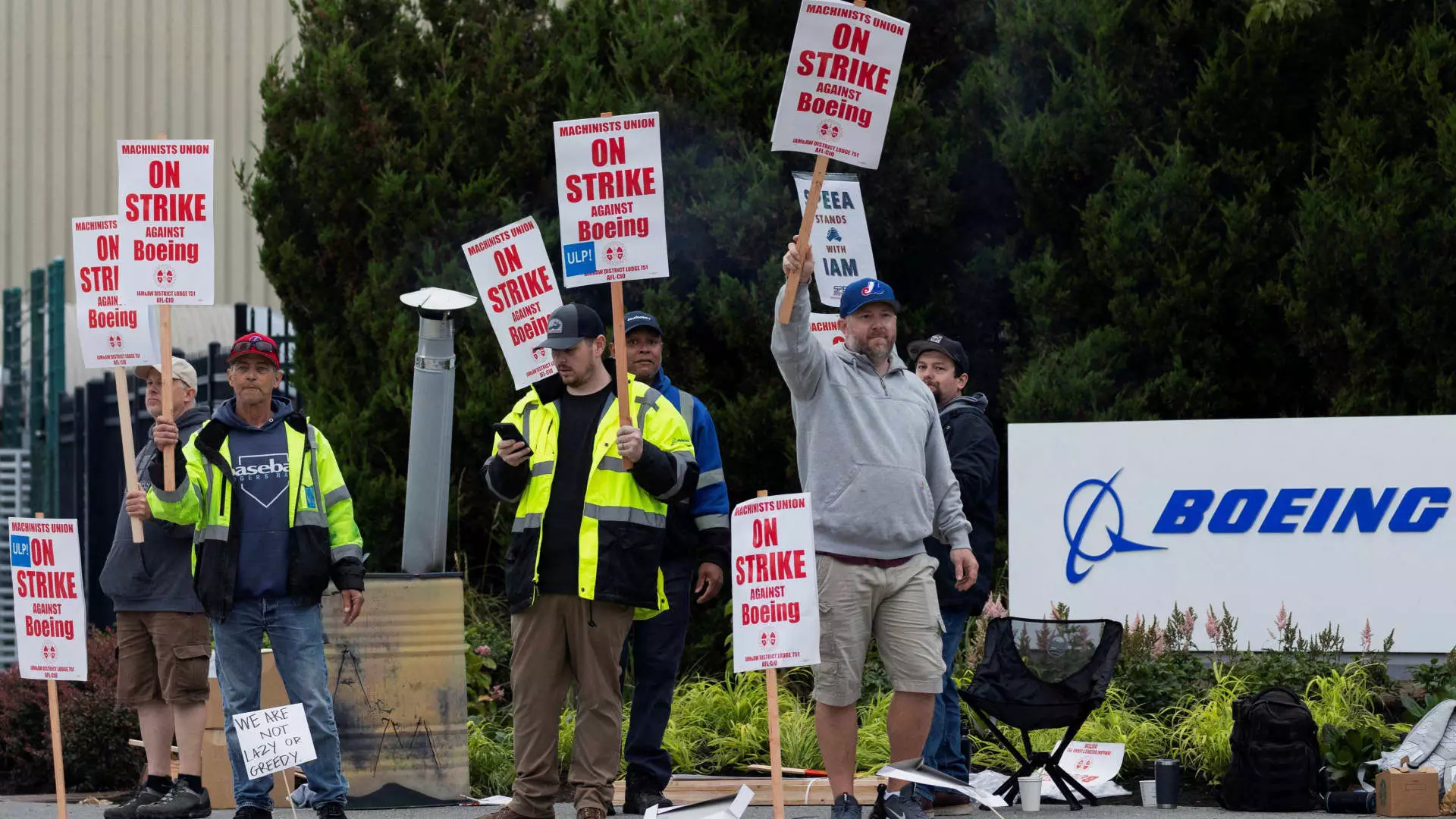In a climate of financial turmoil and operational upheaval, Boeing finds itself entrenched in an ongoing strike led by its machinists. The demands for higher wages amid soaring living costs in the Seattle area are becoming increasingly critical as workers express their frustrations. This labor dispute not only threatens Boeing’s already precarious situation, with the company suffering from massive debt and operational setbacks, but it is also an emblematic struggle of the working class striving for decent living conditions in a challenging economic landscape.
As Boeing’s machinists, numbering over 30,000, continue to picket, their resolve against management’s latest offer—something that some workers view as inadequate—underscores a growing discontent. With an overwhelming majority demonstrating their willingness to strike, it is clear that many workers are seeking significant improvements in their compensation, with aims for nearly 40% wage increases and restoration of pensions that were eliminated over a decade ago. The ongoing clash between the union and Boeing management highlights not only the workers’ demands but also the broader implications of labor relations in an era characterized by rising costs of living and corporate profit margins.
Boeing’s new CEO Kelly Ortberg faces a dual challenge: addressing the immediate concerns of machinists while also confronting the company’s substantial financial burdens. The company’s precarious debt situation—around $60 billion as of now—combined with a three-year stretch without profits, adds an additional layer of complexity to the negotiations. This tumultuous backdrop raises questions about what compromises can or should be made by both parties.
Life on the picket line reveals the human side of this crisis. With the manufacturing of their iconic aircraft on hold, workers have began to take on side gigs such as landscaping, furniture moving, and warehouse work to sustain their livelihoods. Despite their determination, some find themselves grappling with an unsustainable cost of living; the median home price in Washington has surged—an impossible hurdle for many blue-collar workers aspiring to home ownership.
Machinists like Jake Meyer articulate the complex emotional landscape that accompanies labor disputes. His commitment to quality craftsmanship and pride in creating Boeing’s renowned planes lay bare the tension between personal fulfillment and economic necessity. His statement regarding his intention to seek side work illustrates the challenges workers face even as they stand firm for their rights.
The ongoing strike significantly impacts not only Boeing but extends to a sprawling network of suppliers reliant on the aerospace giant’s production. Bank of America estimates that the strike costs Boeing approximately $50 million daily, a staggering figure that emphasizes the urgency for both parties to reach an agreement. The halted production lines inevitably ripple out, affecting jobs and the livelihoods of many beyond the immediate workers involved in the strike.
Reports indicate that Boeing’s ability to manufacture aircraft has come to a grinding halt, forcing suppliers to cease shipments and adapt quickly to the operational disruption. For a company already feeling the strain of a tight labor market, the repercussions of a prolonged strike could exacerbate challenges it faces in hiring and training skilled technical labor—a major concern highlighted by experts analyzing the current situation.
While the Biden administration has expressed hope for a resolution between the two sides that benefits both workers and the company, the ongoing negotiations will require meticulous deliberation. Ortberg’s recent announcement of temporary furloughs serves as a stark reminder of the difficult choices management faces, as they attempt to navigate a path toward financial stability.
As the strike stretches into its second week, it brings to light larger themes concerning the power dynamics between labor and management in industries facing economic pressures. The outcome of this dispute will likely serve as a bellwether for labor relations in the aerospace sector and beyond. Ultimately, the Boeing strike is not just a fight over wages; it symbolizes a broader struggle for workers’ rights in an increasingly corporatized world. The commitment of Boeing’s machinists toward fair compensation reflects a collective resilience that resonates beyond the factory floor, marking a pivotal moment in the ongoing discourse around worker empowerment and corporate accountability.


Leave a Reply